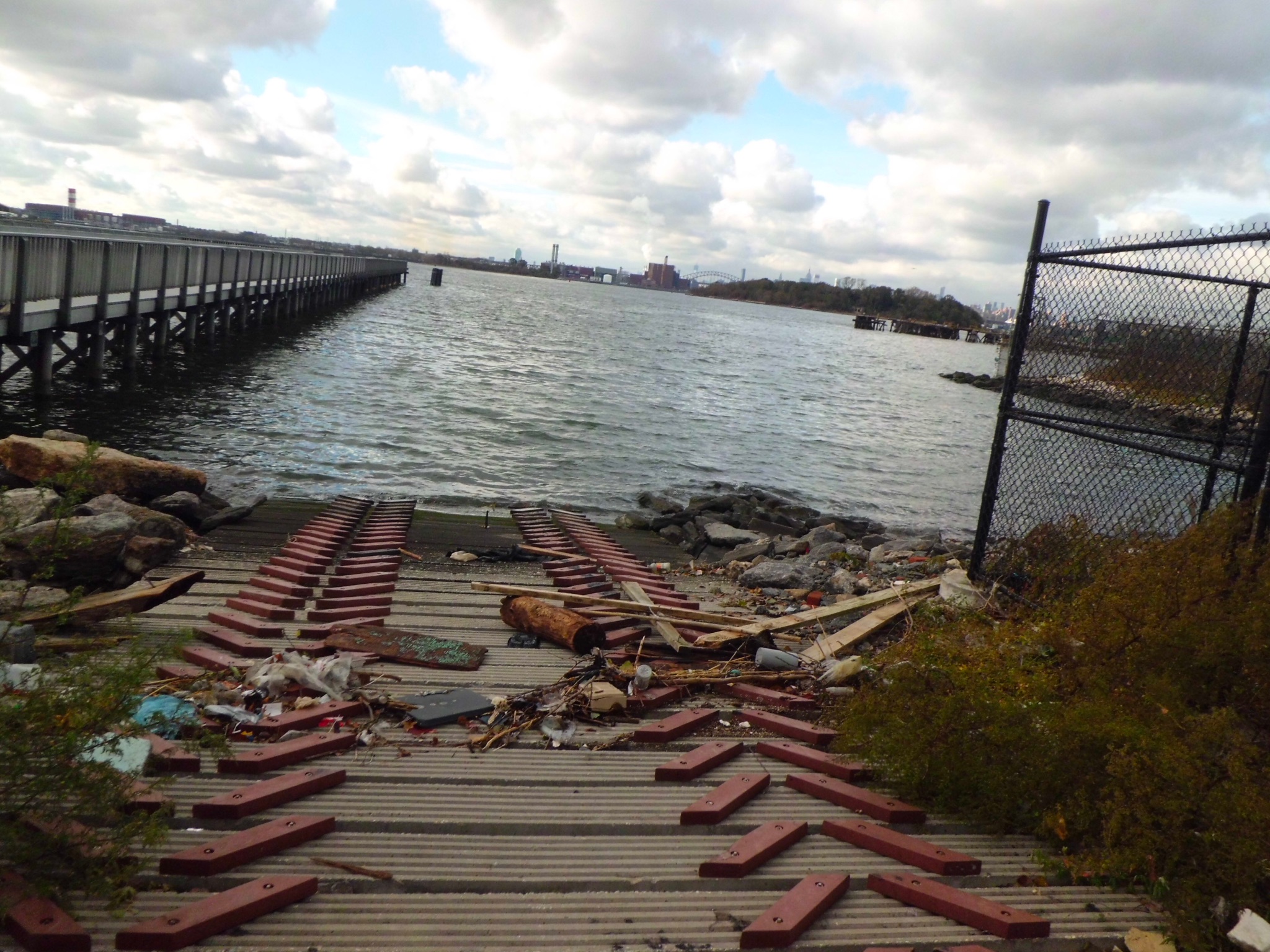When The Point CDC’s Climate Justice Hub Advocate asked the assembly in a church meeting room if they had experienced high pollution in their Bronx neighborhoods, more than half raised their hands. When she asked the crowd to keep their hands up if they had also faced flooded subways, heat vulnerability, or high asthma rates, almost no hands lowered.
“These issues are not a coincidence,” the advocate, Maria Reyes, told the gathering. “They’re by design.”
Reyes was one of several Bronx climate activists who spoke at a town hall at Bronx Bethany Church of the Nazarene in Wakefield on September 19. The event was sponsored by the Bronx Climate and Environmental Justice Network, for environmental justice groups to update each other on their work and hear ideas from community members.
The South Bronx was heavily represented, an indication of Mott Haven and Hunts Point’s outsized vulnerability to the effects of climate change. Three of the twelve Bronx organizations attending were from Hunts Point and Mott Haven: The Point CDC, South Bronx Unite, and We Stay/Nos Quedamos, and were joined by about a dozen residents with no direct affiliation to the groups. The Bronx River Alliance, which also has a strong presence in the South Bronx, also had representation.
After speeches from elected officials and their representatives, attendees broke up into five groups, each holding 45-minute discussions focused on themes like “Education & Green and Healthy Schools” and “Energy & Utility Bills.”
Climate justice, as defined by the event’s organizers, refers to the fair and equitable treatment of all communities in addressing the impacts of climate change, ensuring that solutions do not disproportionately harm vulnerable populations.
Assemblymember Jeffrey Dinowitz (D- 81) spoke about the Climate Change Superfund Act (A.3351), which would create a statewide $75 billion dollar fund for use on “Climate Change Adaptive Infrastructure Projects.” Those projects are defined as those “designed to avoid, moderate, repair or adapt to negative impacts caused by climate change.” Polluters would be required to contribute to the fund at rates proportionate to their historical greenhouse gas emissions in New York State. A company that was determined to have contributed to 1% of historical greenhouse gas emissions, for example, would contribute $750 million to the fund.
The bill passed both the State Assembly and State Senate in June but has yet to be signed into law by Governor Hochul.
“I’ve passed a lot of bills over the years, but the Climate Change Superfund Act is one of the most important,” Dinowitz said, emphasizing the need to hold corporations accountable for their environmental impact. “We’ve done a lot, but we have so much more to do.”
Representatives from Congresswoman Alexandria Ocasio Cortez’s office, Congressman Ritchie Torres’ office, and Assembly member Yudelka Tapia’s office also took part in the roundtable discussions. Victor Martinez, Senior Policy Advisor to Ritchie Torres, fielded questions from the Climate and Transportation Justice roundtable.
The roundtables themselves were moderated by representatives from the activist organizations that organized the town hall. Discussions ranged from the reintroduction of congestion pricing to ideas about creating community gardens in local high schools and relocating trees from Riverdale to the South Bronx.
Urgency from community members
While the problems highlighted and solutions attendees posed ranged widely, the tenor was consistent: Act now.
David Abreu from Soundview, a Clean Water Advocacy Specialist at Save the Sound who was seated at the transportation table asked: “How can the leaders in our community support the uncomfortable transitions we need to create a better climate?” His challenge to the elected officials in the room was echoed by others.
Caesar Tobar-Acosta, 27, a Bronxwide Organizer with Northwest Bronx Community and Clergy Coalition who has taught students about jobs in solar panel installation, said, “We want more students. We want more students! We want more projects.”
Isaac Duarte, 26, from Washington Heights, called for action on transportation.“We can’t keep waiting for the perfect solution. We need to push forward with things like congestion pricing and more express buses, even if they’re not perfect yet. We’ll fine-tune them as we go,” he said.
Duarte emphasized that the Bronx can’t afford to delay, urging leaders to act boldly.
Phil Fram, 75, from Riverdale, pointed out an even more immediate, actionable solution to combat air pollution from idling trucks: “There’s a law in New York City that says a truck can’t idle for more than three minutes, and citizens can file complaints. The person who reports it gets 10% of the fine,” he explained. Fram said the program is being used successfully in Manhattan, primarily by older lawyers. “I think there’s an opportunity for this group to form a Bronx team that can immediately affect change. All you’ve got to do is speak up,” he said.
Reyes, from The Point concluded her remarks, saying “while the past is not looking too good, the present is not looking too good, we can still pave the way for the future.”

